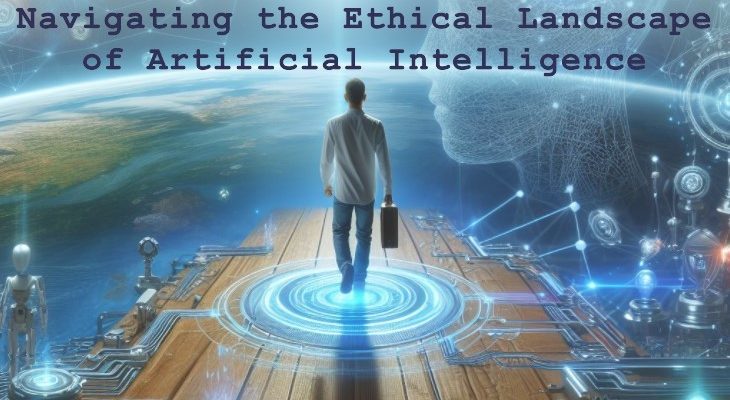In a generation ruled by means of generation, Artificial Intelligence (AI) stands out as a transformative pressure, permeating diverse elements of our lives. From customized pointers on streaming systems to autonomous motors navigating our roads, AI has turn out to be ubiquitous. However, this rapid advancement additionally increases profound moral questions. As AI competencies evolve, so too must our knowledge of digital ethics in its software. In this blog post we will talk about Digital Ethics in AI Applications use Fastest VPN.
What is Digital Ethics in AI Applications
Digital ethics encompasses concepts and values that manual the responsible use of generation, regarding AI. It addresses questions of equity, duty, transparency, privateness, and societal effect. As AI systems end up an increasing number of self-reliant and complex, the want for moral frameworks to control their improvement and deployment will become vital. A VPN is the best option to secure your digital privacy in 2024, you can use a Fastest VPN to make sure your privacy.
Fairness and Bias Mitigation
One of the most moral issues in AI is equity and bias mitigation. AI algorithms, educated on historical facts, can perpetuate biases gift inside the records, leading to unfair effects, particularly in areas like hiring, lending, and crook justice. Addressing this calls for aware efforts to perceive and rectify biases in datasets, in addition to designing algorithms that prioritize fairness and equity.
Accountability and Transparency
AI systems regularly function as “black packing containers,” making it tough to recognize their decision-making methods. This lack of transparency undermines responsibility, mainly whilst AI is deployed in crucial domains like healthcare and finance. Establishing mechanisms for explaining AI decisions and protecting builders chargeable for the outcomes in their structures is essential for building trust and ensuring accountable AI deployment.
Privacy and Data Protection

AI is based closely on facts, raising vast privateness issues. The series and evaluation of massive quantities of private data can infringe on people’ privacy rights if now not dealt with responsibly. Striking a stability between leveraging records for AI innovation and protective individuals’ privateness requires robust facts safety regulations, transparent information practices, and mechanisms for acquiring informed consent. As we recommend above use a best VPN service to secure your digital privacy.
Societal Impact and Ethical AI Governance
The societal impact of AI extends beyond character rights, encompassing broader implications for employment, inequality, and social cohesion. As AI systems automate responsibilities historically done by way of people, worries approximately process displacement and economic inequality get up. Ethical AI governance entails ensuring that AI advances gain society as an entire, promoting inclusive boom and mitigating capability harms.
Challenges and Considerations
Despite growing attention of digital ethics in AI, several demanding situations persist. The rapid pace of technological innovation frequently outpaces regulatory efforts, leaving gaps in oversight and responsibility. Moreover, moral standards might also vary across cultures and societies, complicating efforts to expand universally relevant frameworks. Balancing innovation with moral issues requires interdisciplinary collaboration, related to ethicists, technologists, policymakers, and different stakeholders.
Case Studies
Examining real-global examples can offer treasured insights into the complexities of digital ethics in AI programs:
Facial Recognition Technology: The sizable use of facial reputation generation raises concerns about privateness, surveillance, and potential misuse. Ethical concerns encompass ensuring consent, preventing discriminatory practices, and regulating its deployment in public areas.
Autonomous Vehicles: The development of self-sufficient cars highlights ethical dilemmas surrounding protection, liability, and decision-making algorithms. Addressing these issues requires prioritizing public protection, transparency in algorithmic choice-making, and establishing clear prison frameworks for legal responsibility.
Social Media Algorithms: Social media platforms use AI algorithms to curate content and customise consumer experiences. Ethical issues encompass combating incorrect information, protective consumer privateness, and mitigating the unfold of harmful content.
Conclusion:
Digital ethics in AI applications is an ongoing and multifaceted mission that calls for proactive engagement from all stakeholders. By prioritizing fairness, responsibility, transparency, privateness, and societal effect, we are able to harness the transformative potential of AI whilst minimizing its risks. Building a destiny in which AI serves the common correct necessitates a dedication to ethical ideas and non-stop communicate to cope with emerging demanding situations. Only through collective effort are we able to navigate the ethical landscape of AI and make sure a technologically advanced yet ethically sound society.




